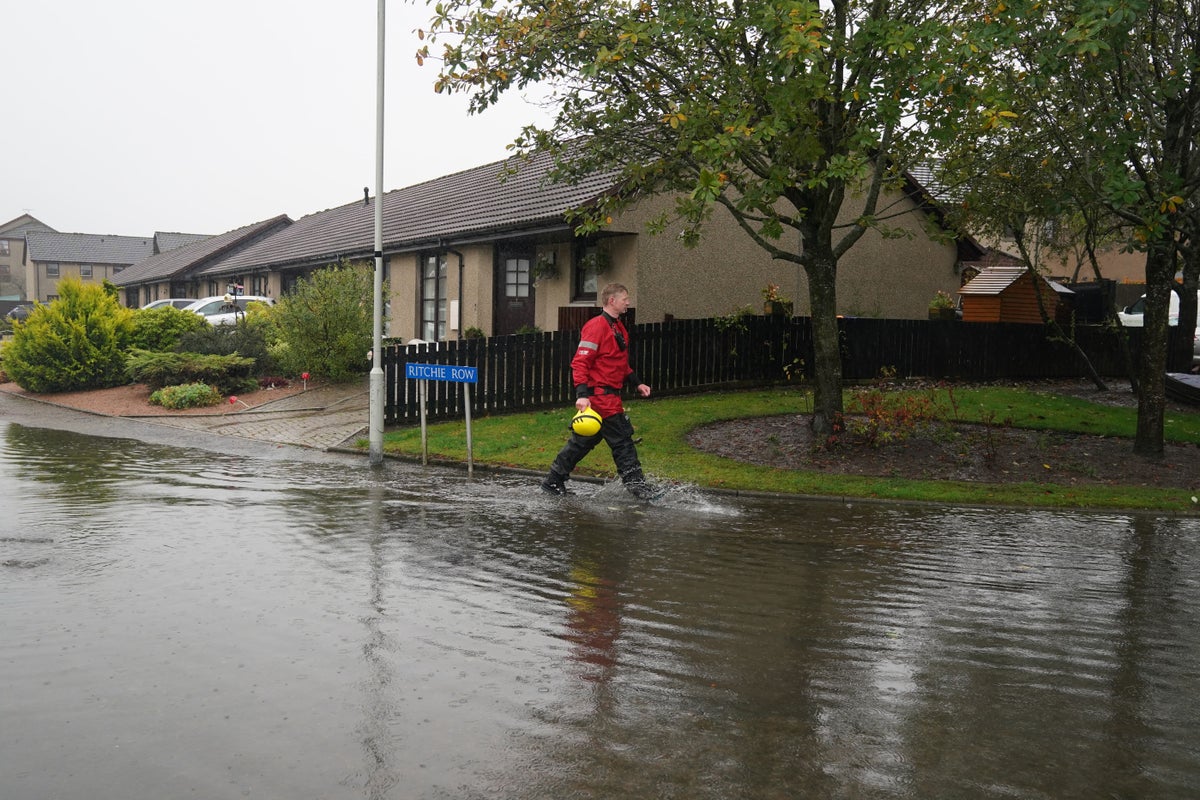
Storm Babet shows climate change is a crisis taking place “here and now”, a Scottish Government minister has said.
Justice Secretary Angela Constance said councils are still assessing the full extent of the damage from the storm, which caused widespread flooding and disruption.
It has claimed at least seven lives across the UK, including three in Scotland.
Ms Constance, whose brief includes Scotland’s resilience, said the Scottish Government would support the affected areas in Angus, Tayside and the north east of Scotland.
Speaking to MSPs at Holyrood, she echoed the First Minister’s message that the worst-hit areas would face a “long road to recovery”.
Ms Constance said: “As we move into the recovery phase, the process of assessing the full amount of damage caused in all areas affected by the storm is now under way.
“These recent events, presiding officer, are a stark reminder that climate change is not a far-off threat.
“It is a crisis that is here now.”
As the worst of the storm hit, Ms Constance chaired meetings of the Scottish Government’s resilience room.
She said three local authorities had notified the Government of potential claims relating to Storm Babet.
Conservative MSP Tess White said those hit by the flooding in Angus wanted more than “warm words” from the Government.
She said: “They want reassurances that Angus Council will have the funds it needs to support people who have lost everything.
“To shore up the flood defence scheme and expedite urgent structural repairs.”
Ms Constance said the Government is focused on supporting the recovery.
She said: “All of these local areas are currently in the throes of assessing the extent of the damage and what is required.
“But let me reassure the member that there will indeed be very extensive and intensive discussions between the Scottish Government and our partners.”
The Justice Secretary was also asked by Conservative Maurice Golden about plans for flood defences.
She said the region had faced two months of rain over two days.
Ms Constance said: “Even with the very best flood prevention schemes for example, we will not be able to provide 100% protection 100% of the time.”







